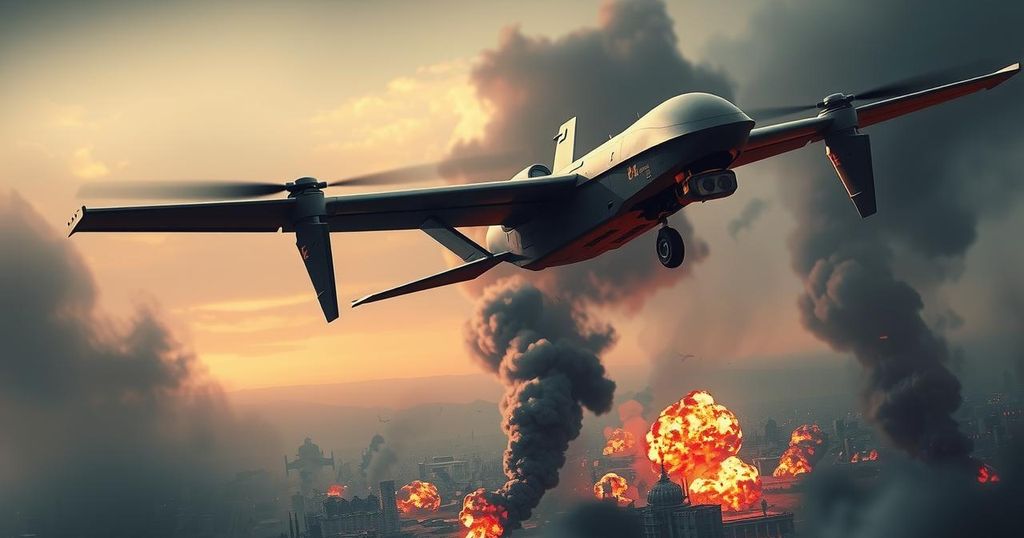World news
AAP NEWSWIRE WORLD ANTI -, ANDREI RUDENKO, ASIA, DEFENCE, ENERGY INFRASTRUCTURE, EUROPE, EUROPE/ASIA, JOINT CHIEFS, JOINT CHIEFS OF STAFF, KIM, KIM JONG UN, KOREA, NORTH, MILITARY, MISSILE ATTACK, NATIONAL INTELLIGENCE SERVICE, NORTH, PYONGYANG, RUSSIA, UKRAINE, VLADIMIR PUTIN, WAR
Sofia Rodriguez
0 Comments
North Korea Increases Military Support to Russia: Troop Deployments and Drone Development
According to South Korea’s military, North Korea has dispatched an additional 3,000 troops and significant military resources to Russia to support its war in Ukraine. This escalation, alongside potential technology transfers in drone development, poses heightened concerns about North Korea’s military capabilities. Recent developments include a ceasefire agreement between Russia and Ukraine, amid high casualty rates among North Korean forces as they engage in warfare for the first time since the Korean War.
North Korea has reportedly deployed an additional 3,000 troops to Russia in January and February to aid President Vladimir Putin’s efforts in Ukraine, according to an assessment from South Korea’s military. The South’s Joint Chiefs of Staff indicate that North Korea is also supplying more missiles, artillery, and ammunition, with potential increases contingent upon the ongoing war situation. Recent developments include a limited ceasefire agreed upon by Russia and Ukraine, although mutual accusations of violations have arisen.
The military equipment dispatched from North Korea comprises significant quantities of short-range ballistic missiles, 170-millimeter self-propelled howitzers, and approximately 220 units of 240-millimeter multiple rocket launchers. This contributes to North Korea’s deployment of about 11,000 military personnel in a conflict that marks its first significant military engagement since the Korean War. Reports suggest that around 4,000 North Korean soldiers may have been killed or wounded in action.
Casualty rates among North Korean troops have been attributed to their difficulty in adjusting to modern warfare tactics, such as drone operations. The South Korean National Intelligence Service has noted that Russian commanders have inadequately supported these troops, leading to higher casualties. Nevertheless, it has been assessed that North Korean forces are gaining essential battlefield experience that bolsters Russia’s strategies in the conflict.
A recent military report from South Korea follows a meeting between North Korean leader Kim Jong Un and Russian security official Sergei Shoigu, in which both leaders reiterated their commitment to a mutual defense treaty. Discussions are underway regarding a potential visit by Kim to Moscow. Kim’s military support for Russia raises concerns over the potential for technology transfers, particularly in fields such as drone development, enhancing North Korea’s military capabilities.
North Korean state media recently reported on Kim’s observations of tests involving newly developed reconnaissance and attack drones, highlighting the nation’s focus on advancing its military technology. Kim has urged increased production of drones, identifying them as a priority for modernization. The tests included drones capable of tracking multiple targets and executing various attack missions, thereby improving intelligence operations and threat neutralization.
During the tests, Kim expressed satisfaction with the drones’ performance and endorsed plans to boost production of advanced drone technology. The state media showcased images of what resembles a modified reconnaissance drone, potentially showcasing capabilities derived from Russian technology. Experts caution that while improvements are evident, the drones may still have vulnerabilities that limit their operational efficacy.
In summation, recent assessments reveal that North Korea has significantly increased the number of troops and military equipment sent to Russia, while also enhancing its drone capabilities. This military cooperation aligns with ongoing support for Russia in the Ukraine conflict, which has raised international concerns regarding technology transfers that may augment North Korea’s military strength. The evolving situation warrants close monitoring as both nations strengthen their bilateral ties amid the ongoing war.
Original Source: abcnews.go.com




Post Comment